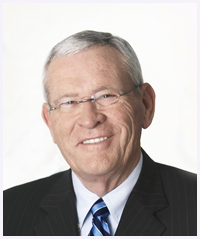AT&T's Whitacre not backing down about carriage fees


At the same time, Whitacre's corporate public relations department issued statements attempting to mute the hard, outspoken tone of their CEO's comments.
Well, a lot of good that did, because Ed is still at it. Maybe his language is a bit more businesslike (he doesn't use the word "silly," for instance), but his determination to apply these carriage fees is just as resolute.
The Financial Times newspaper reported earlier this week that as in a presentation to AT&T investors, Ed is still demanding carriage fees. That could be for rival VoIP services,for Google Video- you name it.
"I think the content providers should be paying for the use of the network- obviously not the piece from the customer to the network,which has already been paid for by the customer in Internet access fees- but for accessng the so-called Internet cloud," he said on Monday.
"If someone wants to transmit a high quality service with no interruptions and 'guaranteed this, guaranteed that', they should be willing to pay for that," he added.
So, in other words, Ed is talking about a gatekeeper fee to let certain high-speed bandwidth services use their network. And although he gives lip service to the concept that the customer has already paid fees to access such content my question would be: hey Ed, don't you think these application providers would pass on the cost of carriage to their subscribers in terms of added fees?
Well, Ed seems to admit that jes' might be the case.
"Now they might pass it on to their customers who are looking at a movie, for example. But that ought to be a cost of doing business for them. They shouldn’t get on [the network] and expect a free ride."
What's Ed Whitacre really up to? Well, note that he made these comments at a presentation to investors. This whole stance is an effort to boost AT&T's stock price on the backs of Internet applications providers and the customers who have already paid AT&T for broadband services.